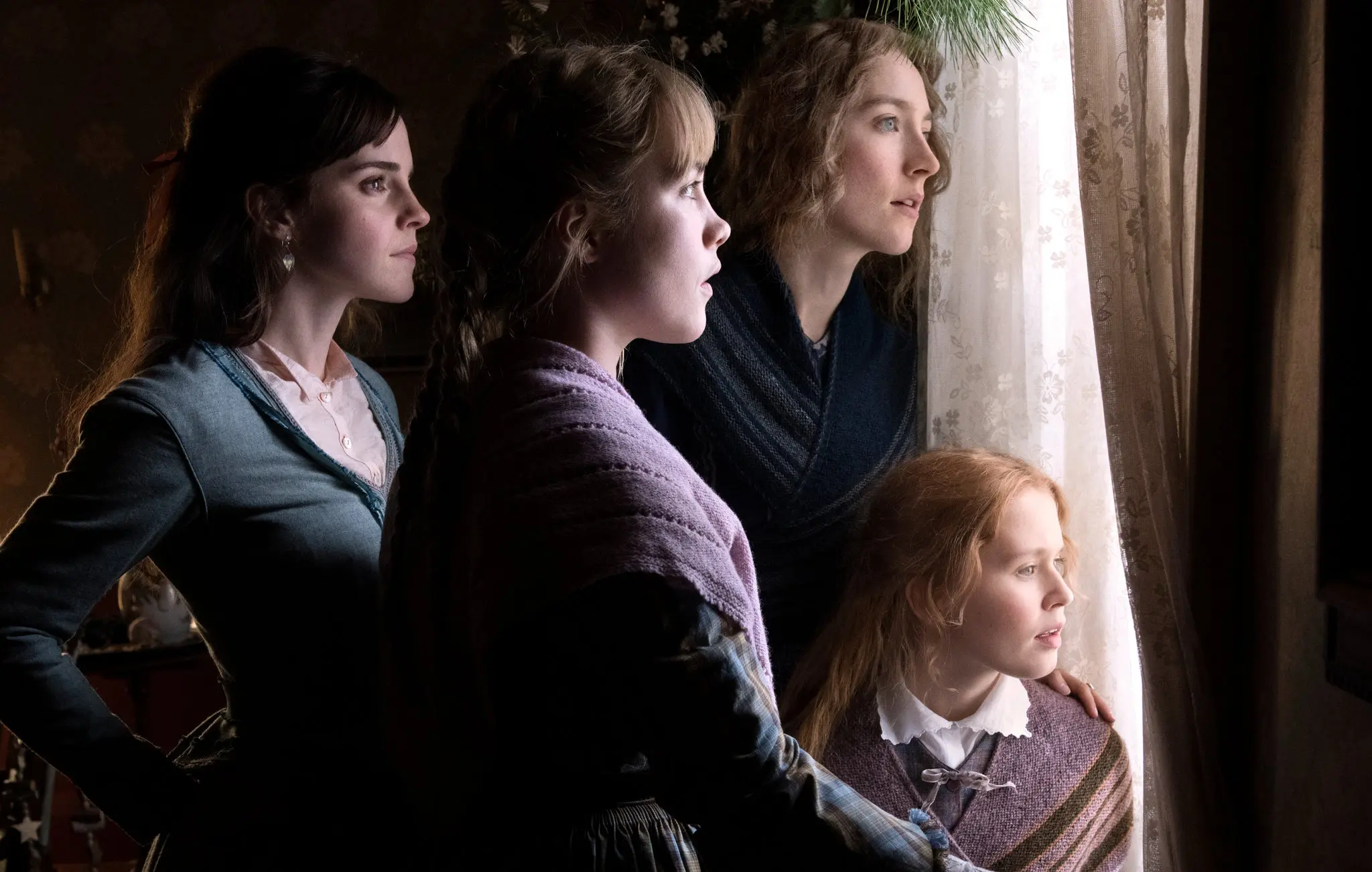Greta Gerwig’s Little Women: a celebration of girlhood
Four years ago, Greta Gerwig’s adaptation of Little Women was released in cinemas, and it became an instant classic for the holiday season. With its warm colour palette and scenes of family and love, the movie is the embodiment of comfort and warmth. It follows the story of four girls growing up, and blossoming into individual, deeply complex women. They face hurdles such as relationship troubles, grief, and finding their place in the world as a woman. Despite also facing conflict with each other, their sisterhood stays strong and pure throughout it all. But what makes the story so incredibly relevant and powerful is that at its core, it’s a celebration of the beauty and intricacies of womanhood – and Gerwig holds a torch to this so boldly that it shines through every single scene in the adaptation.
Every girl remembers choosing a favourite March sister when they were younger, whether it be because they resonate with them, admire them – or both. Perhaps the reason so many girls carry such a strong attachment with the characters of the sisters is due to the beautiful way in which Louisa May Alcott painted their personalities. There is a March sister in all of us, or rather, each March sister mirrors parts of ourselves, in such a beautiful and human way that it makes us love those parts ourselves. Through her portrayal of the sisters, she reminds readers that women carry such beautiful souls within them – ones that hold compassion, strength, and wit, but are also riddled with flaws that make them so endearingly human. This reminder to girls, that they are so whole and loveable just as they are, is needed just as much now as it was in the 1600s.
There is a March sister in all of us, or rather, each March sister mirrors parts of ourselves, in such a beautiful and human way that it makes us love those parts ourselves
Jo March reminds girls that they are capable of so much, and they don’t need to find a partner to be worthy. Amy is a harsh, but essential lesson to girls that, in a world that is constantly fighting against them, sometimes it is better to take the safe route – but that there is no shame in that. Meg’s dream, contrary to that of Jo’s, was always to marry, telling viewers that a simple dream is no less admirable and important. And finally, Beth serves as an ode to quiet girls, whose silent gestures of kindness will never be forgotten. Each March sister is a love letter to girls everywhere.
Amy is a harsh, but essential lesson to girls that, in a world that is constantly fighting against them, sometimes it is better to take the safe route – but that there is no shame in that
“Women, they have minds, and they have souls, as well as just hearts. And they’ve got ambition, and they’ve got talent, as well as just beauty…”
But perhaps what makes this adaptation so important is the ending. In the book, Jo’s final fate is marrying Professor Bhaer. However, this is not what Alcott initially wanted at all. Instead, Alcott wanted to stay true to Jo’s self-assured and career-driven nature and write an ending for her in which she makes a name for herself. But her male publishers resisted this, convincing her that Jo must marry in order for the book to be a success – which gives us the book ending we have today. Gerwig, however, rejects this completely. Jo’s tale in the movie ends with her having her book published, and this is the pivotal moment of her life – not marrying a man. By changing Jo’s ending, Greta Gerwig not only honours Louisa May Alcott’s wishes, but she lights a candle for all the women in the past who never had the power to choose their own fate.
Greta Gerwig’s Little Women proves that the story is one that transcends time, and deeply resonates with people to this day. It is a feel-good movie that provides laughter and comfort to families as they gather around on their sofas during the Christmas season, or even just to girls watching alone in their rooms, looking for solidarity and comfort in the characters of the March sisters. But, more than anything, Gerwig’s adaptation is a reminder to all female viewers to cherish and celebrate the women in their lives – most importantly, themselves.

Comments (1)
This is my most favourite film of all time. I love how your article addresses the deeper meanings of this film and how it resonates with people today. I do think the March Sisters are some of the best written characters of all time. Great review 🙂